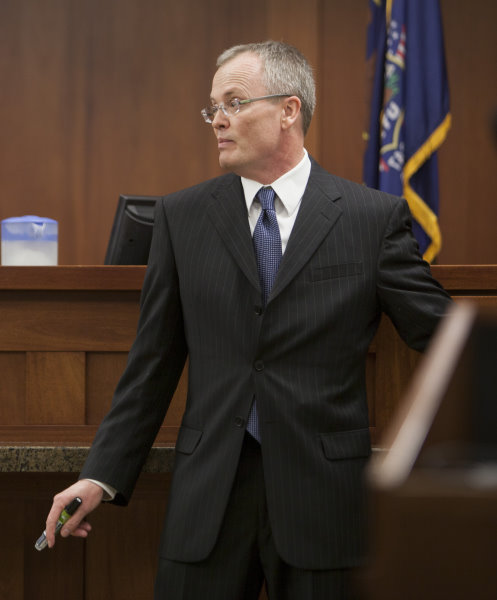
ST. GEORGE — Officials in Iron and Washington counties have been busy determining how a recent federal ruling striking down an ordinance banning women from being topless in public affects Southern Utah communities.
In February, the 10th Circuit Court of Appeals upheld a federal judge’s decision that found a Fort Collins, Colorado, law that banned women from going topless in public was unconstitutional and violated the equal protection clause of the Fourteenth Amendment.
Circuit Judge Gregory Phillips wrote in the decision that the city’s claim that the ban was designed for the purpose of protecting children was derived “from negative stereotypes depicting women’s breasts, but not men’s breasts, as sex objects.” The decision also states Fort Collins “presented no evidence of any harmful fallout” should the ban be lifted.
Utah is one of six states that falls under the jurisdiction of the 10th Circuit Court, which also includes Colorado, Kansas, New Mexico, Oklahoma and Wyoming.
The 10th Circuit ruling effectively means that topless bans in those six states are longer enforceable, but laws will still need to be removed or revised in individual municipalities.
Outdated statutes may not have any effect on enforcement action, though, as a shift in the way reports of toplessness are handled in Southern Utah is currently underway in agencies across Washington and Iron counties.
In response to the circuit court’s ruling, Washington County Sheriff’s deputies have been instructed not to respond to calls involving women being topless, as long as they are in a public place, Lt. Dave Crouse told St. George News Tuesday.

Despite the statutes that are “on the books” right now prohibiting women being topless in a public place, he said deputies have been given the directive to follow the court ruling until those ordinances are revised.
“The court’s decision is clear, and we will not enforce or take action against the ruling,” he said. “Unless, of course, the decision is overturned by the U.S. Supreme Court.”
On private property where “shoes and shirts” are required by a particular establishment or property owner, Crouse said reports are handled as trespass calls that would apply to anyone, regardless of gender.
“In that case, the individual would be cited for trespassing and would not be able to remain on the property, which is no different than what we do now,” he said.
If deputies were to take action on reports based on toplessness alone, Crouse said the department could be held liable on the grounds that the enforcement action violated the individual’s constitutional right to equal protection.
In the city of St. George, Police Capt. Mike Giles said the ruling “will impact the way we respond to calls of that nature.”

He said there are statutes the ruling may have no effect on, so the department is going over the details of the circuit court’s decision as it applies to the laws currently in place.
Mayor Jon Pike told St. George News during a previous interview that the city “pays attention to any ruling that comes down from the 10th Circuit Court,” adding the issue will be discussed with the city attorney.
“The 10th Circuit Court has made a ruling,” Pike said. “We’ll cooperate and are resolved to work within the framework of the appellate system we have in place.”
Washington City Police Chief Jason Williams said his officers will follow the recommendations of the city and county attorney, but he anticipates they will follow the higher court’s ruling, adding that he would prefer that any changes include age restrictions.
“I think most people are logical, but I would hope any changes would apply to adults and not children,” he said.
The ruling is under review at the Washington County Attorney’s Office to determine how it impacts local laws and statutes, Washington County Attorney Brock Belnap told St. George News.

“We are still in the process of figuring that out,” he said.
Similarly, Iron County Attorney Chad Dotson said his office is reviewing the Colorado case to determine how the ruling applied to the laws in Fort Collins, specifically, and how that relates to Utah’s lewdness laws. He said his office will “follow the 10th Circuit Court ruling, but there may be other statutes at play here.”
Dotson said there are issues his office may need to address, such as how the ruling relates to children. For now, the Attorney’s Office is examining it on a case-by-case basis.
“But that doesn’t mean we are giving carte blanche to anyone who wants to run around without a shirt on at this point,” Dotson said.
Lt. Del Schlosser of the Iron County Sheriff’s Office said the 10th Circuit’s decision “dictates how we enforce or do not enforce current laws. The main thing is that we follow what the courts have decided.”
Outside of Utah and the other affected states, similar statutes have been challenged, including a case filed in New Hampshire by three women after the state’s highest court upheld its topless ban. That case has been requested to be heard before the U.S. Supreme Court.
Copyright St. George News, SaintGeorgeUtah.com LLC, 2019, all rights reserved.